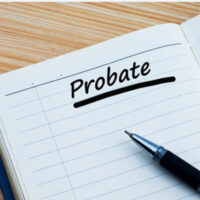What Is The Probate Process In Massachusetts?

After a person passes away, their estate may go through the probate process. Probate can be a complicated and frustrating process if you try and go through it alone, especially right after the death of a loved one, but the experienced and knowledgeable Norwood estate planning lawyers at Fisher Law are here to help. We can assist with the probate process of a loved one along with any other issues that may arise in the distribution of an estate. To learn more about the wide range of legal services offered to our clients, call or contact our office today.
Testate or Intestate Estate
The first step in the probate process in Massachusetts is determining whether your loved one died with a will, known as testate, or without a will, known as intestate. If there is a Last Will and Testament or other estate planning documents, the estate will be divided according to those wishes. However, if a person died intestate, the estate is divided during probate according to the laws of intestacy, which divides the assets between the deceased’s living relatives.
Appointing an Executor/Executrix
The second step in the process is determining who should serve as the executor or executrix of the estate. In many cases, this person is appointed in the will by the deceased, but a person may also be appointed by the court. The executor is often a family member or an attorney who handles the administrative steps of the probate process. In Massachusetts, the executor is now known as the Personal Representative or PR.
Administrative Process of Probate
There are many steps involved in the administrative process of probate. The PR of the estate must first collect all the assets of the estate and determine which assets must pass through the probate process. There are many types of assets that are allowed to bypass probate and be distributed directly to beneficiaries after a person’s death. Once the assets are collected, the PR must pay off all final taxes and debts for the estate. This may involve placing notice for any creditors to make claims as well as negotiate settlements to resolve outstanding debts. The final step in the process is to distribute the remaining assets in the estate according to the wishes of a final will or according to Massachusetts intestate law. This must all be done under the eye of the probate court, with regular updates and filings submitted to the court by the Personal Representative of the estate. To learn more about the probate process and how our office can assist with this process, talk to our office today.
Call or Contact Fisher Law
At Fisher Law in Norwood, our compassionate and skilled estate planning attorneys understand that the last thing a person wants to deal with after the loss of a loved one is the probate process of an estate. If you are interested in learning more about how our lawyers can facilitate this process on your behalf or provide legal assistance, call the office or contact us today to schedule a case consultation.
Source:
law.cornell.edu/wex/probate_estate
